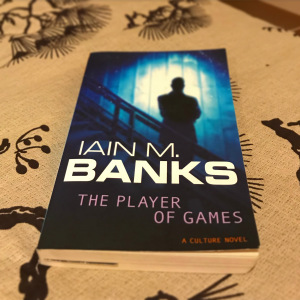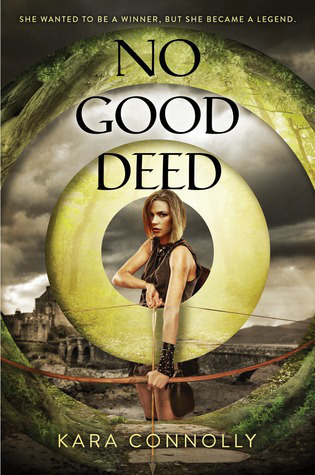
I must admit that I forgot to write the book review that I promised at the beginning of the month…because I was distracted by other books! In my defense, many of the books I’ve read in the past couple months have been amazing and several of them deserve (but will not get) their own review on this blog. Instead of continuing to beat myself up over not writing multiple complete reviews, here are five mini-reviews of my favorites from the 20~ books I’ve most recently consumed.
Norse Mythology by Neil GaimanThis was the first book that I ever pre-ordered and I have no regrets. I’ve read dozens, if not hundreds, of myths and legends from other cultures. While my main interests are in Greek and Japanese mythology, I’ve felt increasingly attracted to Norse lore in the past year. Much of the massive and intricate world of this mythology has been lost to time and anti-pagan cultures, leaving behind mainly stories of Thor, Loki, and the apocalypse, known as Ragnarok.
Gaiman takes the limited remaining mythology and turns it into a beautiful, interconnecting short story collection. His characterization stands out the greatest; trickster god Loki is a character who was long destined to be written by the witty Gaiman, who succeeds in balancing Loki’s inner demons with his outer motives, which range from chaotic neutral to pure evil.
This was also the easiest read on this list. I quickly devoured it in a few hours, and then read it again shortly after. To a Gaiman fan who knows nothing about Norse mythology, this book is an excellent primer. As a Norse mythology fan, Gaiman’s collection is the well-woven literary treasure that this amazing lore deserves.
The Impossible Fairy Tale by Han YujooI was fortunate enough to read this book within a week or so of its U.S. release in March and was not disappointed. Yujoo’s first novel, The Impossible Fairy Tale is a seemingly quick read at 192 pages. The first part of the novel flows exceptionally well, moving at the pace of a typical (albeit dream-like) thriller. However, the second, shorter part of the novel provides a jarring contrast that takes significantly longer to digest.
The first part of the novel is about two elementary school girls in late-90s South Korea: Mia, a supposedly lucky girl who gets all the material possessions she wants (given to her by her two “dads”: her biological father and her mother’s lover) and The Child, a nameless symbol of childhood abuse and neglect filled with an immature notion of consequences and a too-mature understanding of pain. The two are classmates in a school filled with disturbingly violent students, who seem to love playing the “choking game” and killing small animals.
The second part of the novel is a complete deconstruction of the first part, with The Child confronting the narrator/writer, who is also apparently the classroom teacher. The novel has no solid resolution, but it does not need one. It is by far the most unique book on this list.
The Vegetarian by Han KangThe first word that comes to mind when I think of this novel is “brutal.” While the violence in The Impossible Fairy Tale feels more senseless, The Vegetarian has this odd, abstract and visceral horror surrounding a mentally ill woman who never really gets a chance to speak for herself.
This three-part novella is about a particularly uninteresting housewife named Yeong-hye who becomes a vegetarian after she begins suffering from horrific, bloody nightmares about human cruelty. Her condition worsens throughout the book as she further alienates herself from mankind – which sometimes seems like it is for the best, as she keeps being mistreated by the (mostly male) humans in her life.
This was another quick read that left me shaken. I think the most disturbing and striking part is that Yeong-hye doesn’t ever share what’s happening in her own words. The only thing she controls is her own body.
Princess Knight, Vol. 1 by Osamu TezukaI am a sucker for old-school anything, but I haven’t read much from the Godfather of Manga himself, Osamu Tezuka! Best known in the U.S. for Astro Boy, Tezuka has a massive bibliography featuring a broad range of works. I stumbled across the complete two-volume set of Princess Knight at my local library and decided to make it my first foray into Tezuka’s body of work.
Princess Knight starts as a Disney fairy tale and quickly turns into a proto-feminist Hero’s Journey. Prince/ss Sapphire was born with both a boy heart and a girl heart and her family struggles to keep her identity as a girl hidden because in their kingdom a woman is not seen fit to become ruler.
The story is filled with fantastical elements, deus ex machina, fairy tale romance, and other typical Disney fare. The second volume feels particularly rushed and “easy”; however, the first volume has great pacing, genuine suspense, and some pretty awesome development for many of the characters. The oddest part of the story is actually the Christian themes, with much riding on the power of God, the cross, and a mischievous angel. This gets weirder in the second volume, with the introduction of a Greek Goddess, but the adaptation of these Western cultural elements are one of the many things that ultimately make Princess Knight feel very unique.
You Are What You Speak: Grammar Grouches, Language Laws, and the Politics of Identity by Robert Lane GreeneThe only non-fiction book on this list, You Are What You Speak is an intelligent examination and criticism of prescriptive grammar – that is, the idea that if one does not follow the arbitrary rules of a language, they are looked as inferior. I have spent most of my academic career as a descriptivist, so I was worried that reading this book would be more of a “preaching to the choir” kind of thing. Lane Greene does provide many historical references that support my beliefs, but his book also taught me a great deal about the political motives and uses of language around the world.
Lane Greene writes in an accessible way that still shows that he knows his shit. With maybe one exception, he always balances his coverage of prescriptivists and traditional grammarians, providing reasons why they may have believed or said what they did. However, this isn’t always the case because, as you’ll learn if you read this book, a lot of the grammar rules in English originate from one person who wrote a pamphlet hundreds of years ago that simply stated their personal preferences.
If you are interested in the origins, the ever-changing nature, and the politics of language, this is a great place to start your research. Thanks to Lane Greene’s references, I’ve found countless other books that I’m excited to read…once my book backlog drops!
- Current drink: Pure Leaf Raspberry Ice Tea
- Current book: Kitaro by Shigeru Mizuki
- Current audio book: The Girls by Emma Cline
- Current music: “Why So Lonely” – Wonder Girls





